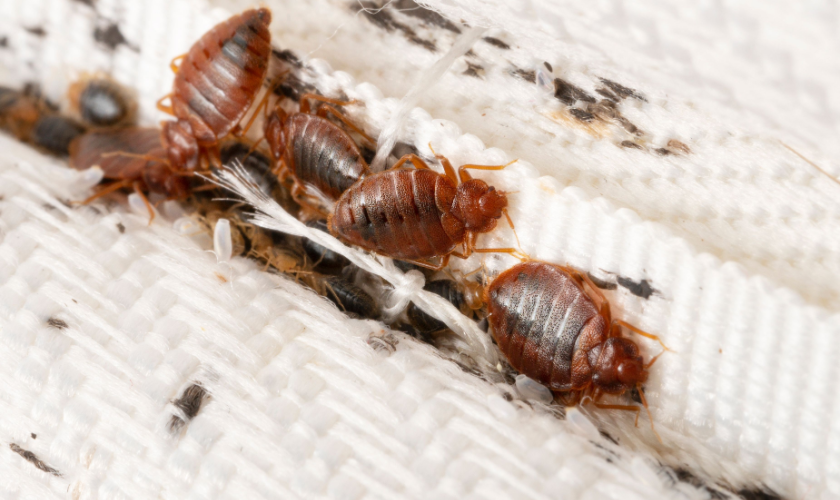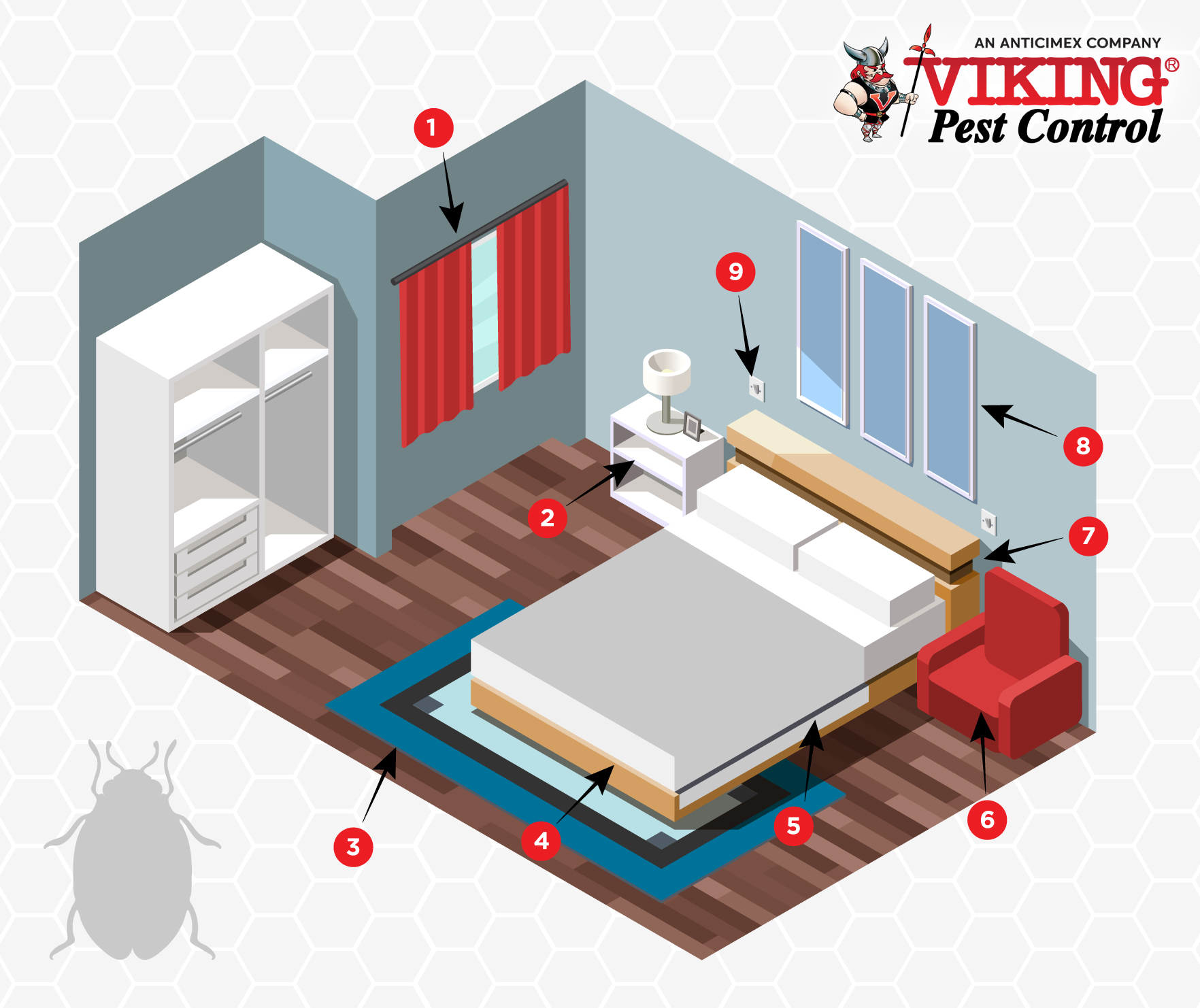Kinds Of Insect Control: Which Approach Is Right for Your Infestation?
When encountered with a parasite problem, the choice of a proper method for parasite control is vital in successfully handling the situation. From chemical treatments to organic remedies, there exists a series of methods that can be employed to address different types of insects. Each method comes with its very own collection of considerations and advantages, making the decision-making procedure a nuanced one. Comprehending the subtleties of each approach and reviewing their compatibility with the details parasite problem handy is important for attaining lasting success in bug administration. By exploring the various types of parasite control approaches readily available, people can make enlightened choices customized to their special conditions, guaranteeing an extra reliable and sustainable end result in insect removal.
Chemical Pest Control
Chemical insect control involves using artificial or naturally obtained chemicals to handle and eradicate pest populaces efficiently. This approach is typically used in farming, forestry, and household setups to deal with a large range of insects, including pests, weeds, and rats. Making use of chemical pesticides can give fast and targeted remedies to pest invasions, making it a popular selection for many people and companies.
Among the essential advantages of chemical parasite control is its capability to promptly remove parasites, decreasing the risk of damage to plants, residential property, and human wellness. By using details chemicals that target specific parasites, this technique can efficiently manage infestations while reducing damage to useful organisms and the environment when applied appropriately.
However, the use of chemical insect control likewise raises problems concerning prospective damaging impacts on non-target species, water resources, and human health and wellness. It is critical to comply with safety and security guidelines, apply chemicals properly, and consider alternate parasite control techniques to lessen these threats and guarantee sustainable bug administration techniques.
Biological Insect Control
Organic bug control, likewise understood as biocontrol, utilizes living organisms to take care of and reduce insect populaces normally. By making use of the pest's all-natural predators or microorganisms, organic bug control supplies a ecologically friendly and sustainable service to pest administration.

Mechanical Insect Control
Making use of physical and hand-operated methods to take care of pest populaces, mechanical parasite control provides an alternative method that does not count on making use of living microorganisms or artificial chemicals. This technique involves using barriers, catches, or various other devices to literally hinder or get rid of pests. By blocking parasite entry points or establishing traps to catch them, mechanical pest control can successfully lower infestations without presenting chemicals into the atmosphere.
One usual example of mechanical bug control is making use of mesh displays on doors and home windows to avoid bugs from going into buildings. This basic yet reliable method acts as a physical obstacle, keeping insects out while permitting appropriate air flow. Furthermore, devices like mousetraps, fly swatters, and ultrasonic repellents fall under the mechanical parasite control category.
While mechanical parasite control approaches can be labor-intensive and need normal surveillance and maintenance, they offer a environmentally friendly and sustainable solution for managing bug invasions. By integrating various mechanical techniques, homeowner can produce a comprehensive parasite control method that lessens dependence on chemical pesticides.
Physical Insect Control

Some typical physical insect control approaches include making use of obstacles such as displays or internet to prevent bug entrance, traps to capture and remove insects, and hand-picking to physically get rid of insects from plants or structures. In addition, techniques like warm treatments can be used to regulate bugs like bed insects by elevating the temperature level to degrees that are deadly to the insects.
Physical parasite control is specifically valuable in incorporated pest management (IPM) approaches, where numerous bug control techniques are incorporated for efficient insect management while reducing making use of chemicals. By making use of physical insect control techniques, people can successfully address parasite infestations with marginal environmental influence.
Integrated Pest Administration
When executing physical pest control methods as component of bug administration approaches, Integrated Pest Management (IPM) becomes a thorough approach that leverages numerous methods to effectively manage pest populaces. IPM focuses on long-lasting avoidance of insects with a mix of biological, cultural, physical, and chemical tools tailored to specific pest issues. By integrating several control techniques, IPM aims to minimize the threats linked with bugs while likewise minimizing reliance on chemical services.
One key element of IPM is the focus on tracking and analyzing pest populaces to identify one of the most suitable control techniques. This aggressive method enables early treatment and targeted strategies, resulting in extra effective parasite administration. In addition, IPM advertises eco-friendly methods by focusing on non-chemical control methods and only making use of pesticides as a last resource.
Final Thought

By using the bug's natural predators or pathogens, biological insect control provides a sustainable and eco pleasant option to pest administration. - Kings exterminator cincinnati
Utilizing hand-operated and physical techniques to manage pest populaces, mechanical parasite control offers a different technique that Kings pest control Cincinnati does not rely on the usage of living organisms or artificial chemicals.An effective approach to taking care of insect populations without counting on chemical or organic methods involves the usage of physical insect control methods.When executing physical bug control techniques as component of parasite management approaches, Integrated Bug Administration (IPM) arises as an extensive strategy that leverages numerous techniques to successfully regulate pest populations. Chemical bug control entails the usage of chemicals, organic insect control uses natural killers, mechanical parasite control involves physical barriers, physical insect control consists of trapping or eliminating parasites, and integrated bug monitoring combines multiple methods for a holistic method to pest control.
Comments on “Kings Cincinnati Pest Control Companies: Reliable Services”